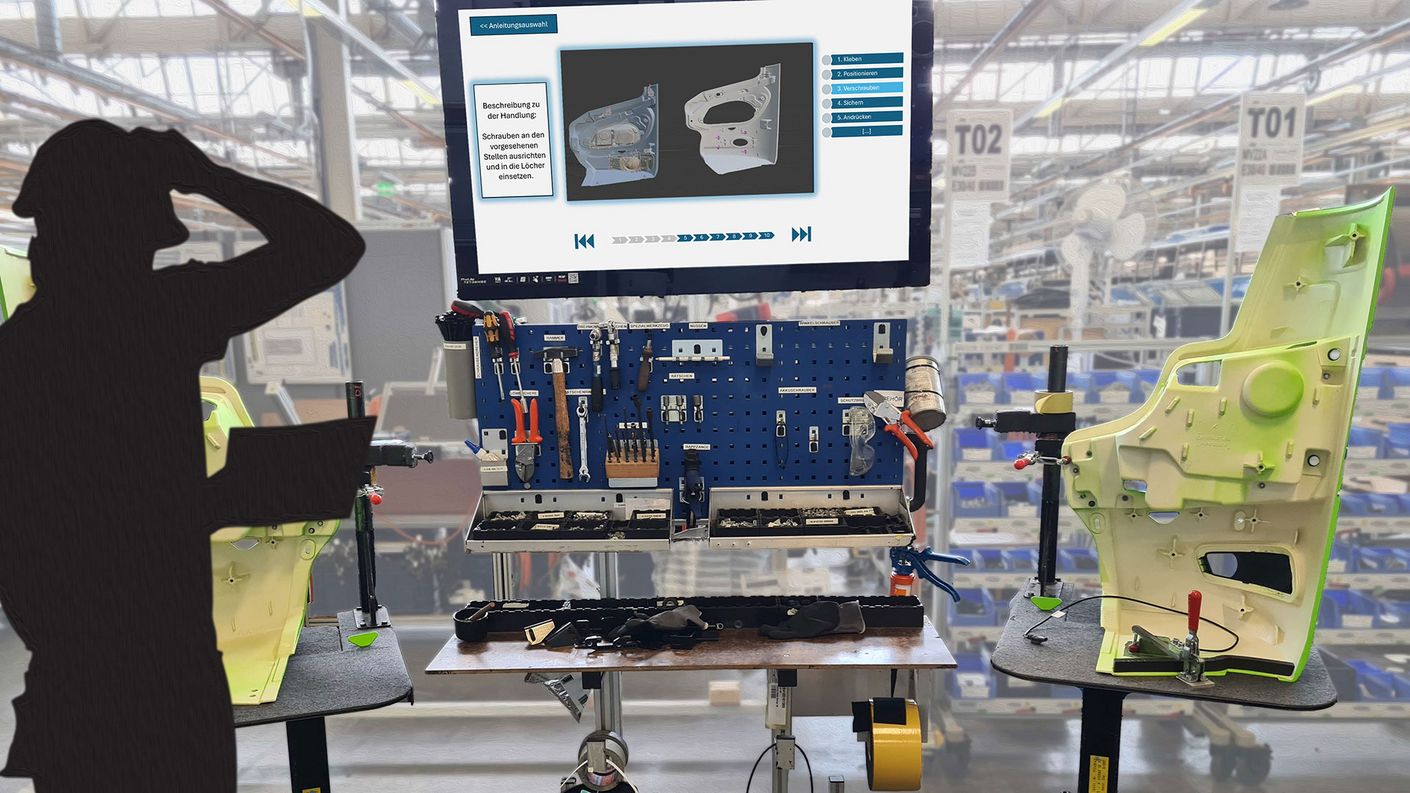
TwinMaP - Digital Twins in Production
Smart, AR-supported assistance using the example of a virtual barista
 © Hochschule Emden/Leer
© Hochschule Emden/LeerIn modern production environments with heterogeneous machinery, integrating and optimizing maintenance and operating processes poses a challenge. The lack of data standardization and adaptation to workers' individual knowledge levels often lead to inefficiencies and operating errors that can impair the productivity and reliability of manufacturing processes.
This is where TwinMaP comes in: The joint project, in which 11 partners – including Emden/Leer University of Applied Sciences, Daimler Buses, and the German Research Center for Artificial Intelligence (DFKI) – are cooperating, is developing digital twins to record states, components, and behaviors in production processes in detail.
By using AI-supported, adaptive process control systems and advanced augmented reality technologies, TwinMaP creates an intelligent human-machine interaction (MCI) platform. This platform allows for personalized work instructions that adapt to the user's level of experience.
The use of such worker assistance systems is demonstrated using the example of a virtual barista. The demonstrator consists of a coffee machine and powerful AR glasses. Dynamic instructions guide users through the cleaning process of the brewing group. Various presentation formats can be used, from classic job cards with text and images to interactive 3D animations and a virtual assistant.
In industrial practice, digital twins are suitable because they record machine statuses in detail and provide real-time feedback via IoT connections (e.g., door status, or components in use). This enables dynamic instruction adaptation and efficient fault diagnosis.
With these technologies, TwinMaP creates a scalable solution for the production of the future: intelligent, adaptive assistance systems that are more efficient, sustainable, and user-friendly.
Back to: DFKI at Hannover Messe 2025